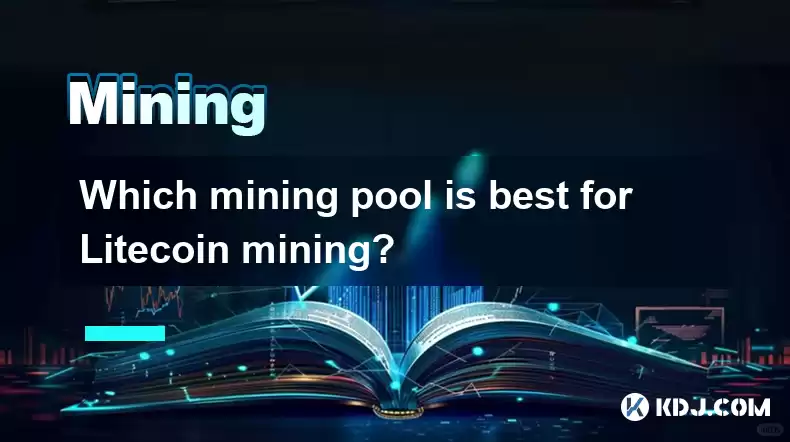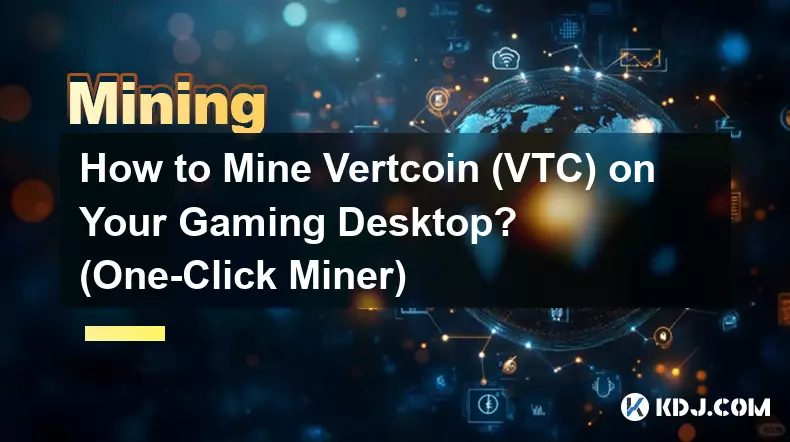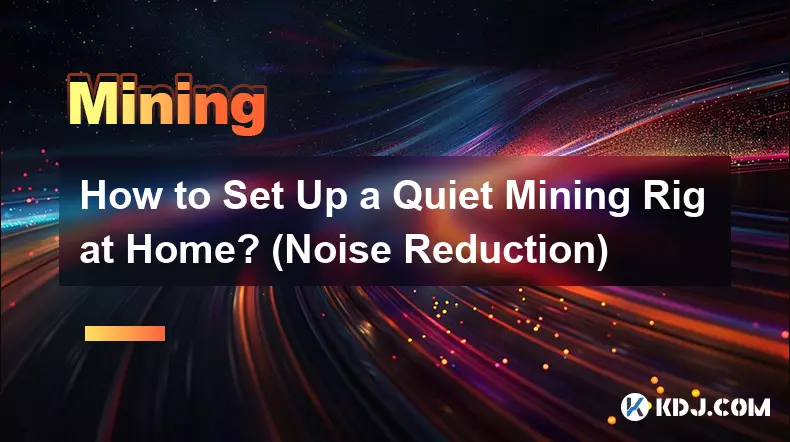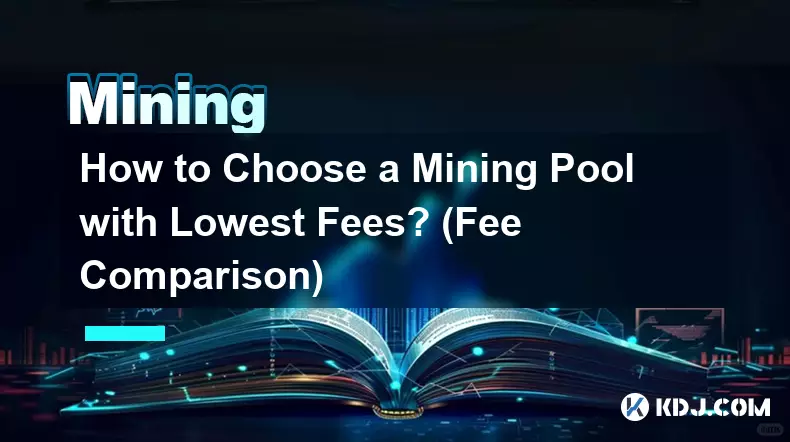-
 bitcoin
bitcoin $87959.907984 USD
1.34% -
 ethereum
ethereum $2920.497338 USD
3.04% -
 tether
tether $0.999775 USD
0.00% -
 xrp
xrp $2.237324 USD
8.12% -
 bnb
bnb $860.243768 USD
0.90% -
 solana
solana $138.089498 USD
5.43% -
 usd-coin
usd-coin $0.999807 USD
0.01% -
 tron
tron $0.272801 USD
-1.53% -
 dogecoin
dogecoin $0.150904 USD
2.96% -
 cardano
cardano $0.421635 USD
1.97% -
 hyperliquid
hyperliquid $32.152445 USD
2.23% -
 bitcoin-cash
bitcoin-cash $533.301069 USD
-1.94% -
 chainlink
chainlink $12.953417 USD
2.68% -
 unus-sed-leo
unus-sed-leo $9.535951 USD
0.73% -
 zcash
zcash $521.483386 USD
-2.87%
Which mining pool is best for Litecoin mining?
When selecting a Litecoin mining pool, consider factors such as mining rewards, pool fees, reliability, hashrate, customer support, and community involvement to optimize your earnings and ensure seamless mining operations.
Jan 12, 2025 at 01:08 pm

- Understanding Litecoin mining rewards
- Evaluating mining pool fees and payouts
- Considering pool reliability and uptime
- Assessing the pool's hashrate and network stability
- Reviewing the pool's customer support and community involvement
- ViaBTC: Known for high stability, competitive fees of 2%, and a multi-algorithm mining platform.
- F2Pool: Offers a low fee of 1.5%, supports a wide range of cryptocurrencies, and has a good reputation for reliability.
- AntPool: Owned by Bitmain, it has a massive hashrate and supports solo mining with higher fees.
- Binance Pool: Part of the Binance ecosystem, it provides low fees at 1%, but may have higher network fees during peak times.
- LitecoinPool: Dedicated solely to Litecoin mining, it has low fees at 1% and a focus on community involvement.
- Calculate potential earnings based on block rewards and transaction fees.
- Monitor Litecoin's price to determine profitability.
- Compare fee structures, including pool fees, network fees, and maintenance fees.
- Consider payout thresholds and minimum withdrawal amounts.
- Check the pool's historical uptime statistics.
- Monitor the pool's hashrate and network stability.
- Ensure 24/7 support for technical issues and account inquiries.
- Join a pool with a high hashrate to increase the chances of finding blocks.
- Consider the pool's network stability and geographical distribution.
- Avoid pools with excessive hashrate concentration.
- Assess the quality of the pool's customer support channels.
- Check the pool's involvement in the Litecoin community, such as forums and social media.
- Look for pools that actively participate in Litecoin development and promotion.
- What is the best mining pool for solo mining?
- Solo mining is not recommended for Litecoin due to its high difficulty. Consider joining a pool instead.
- Can I mine Litecoin with a CPU?
- Yes, but it is not profitable due to the low hashrate of CPUs compared to ASIC miners.
- How do I optimize my Litecoin mining rig?
- Choose efficient ASIC miners, optimize power consumption, and consider overclocking to increase hashrate.
- What is the expected return on investment for Litecoin mining?
- Returns vary based on difficulty, electricity costs, and Litecoin's price. Calculate your potential earnings carefully.
- Is Litecoin mining still profitable?
- Check current profitability estimates using online calculators and consider the future price prospects of Litecoin.
Disclaimer:info@kdj.com
The information provided is not trading advice. kdj.com does not assume any responsibility for any investments made based on the information provided in this article. Cryptocurrencies are highly volatile and it is highly recommended that you invest with caution after thorough research!
If you believe that the content used on this website infringes your copyright, please contact us immediately (info@kdj.com) and we will delete it promptly.
- UAE Investor Secures Major Stake in Trump-Linked Crypto Firm Amidst Shifting Geopolitical Tides
- 2026-02-02 07:10:01
- Pepe Meme Coin: Navigating the Hype, Price Predictions, and Future Outlook in 2026 and Beyond
- 2026-02-02 07:05:01
- Blockchain Gaming's Quiet Revolution: Unpacking Latest Trends and Industry Insights Amidst Market Shifts
- 2026-02-02 06:30:01
- IPO Genie, Tokenization, and YouTubers: The Big Apple's Next Big Bet on Democratized Wealth
- 2026-02-02 06:40:02
- Aptos in a Bind: Downtrend Deepens, But a Brief Relief Bounce Looms Before the Next Plunge
- 2026-02-02 07:00:01
- Pi Network, ATL, and Community: Navigating the Currents of a Mobile-First Crypto Movement
- 2026-02-02 07:00:01
Related knowledge

How to Spot a Cloud Mining Scam? (Red Flags to Watch For)
Feb 02,2026 at 08:20am
Unrealistic Return Promises1. Platforms advertising guaranteed daily returns above 1–2% without disclosing underlying hardware, electricity costs, or ...

How to Earn Passive Income with DePIN Mining? (New Trend 2026)
Feb 01,2026 at 12:40pm
Understanding DePIN Mining Mechanics1. DePIN mining relies on real-world infrastructure participation rather than computational hashing. Users deploy ...

How to Mine Vertcoin (VTC) on Your Gaming Desktop? (One-Click Miner)
Feb 02,2026 at 03:39am
Understanding Vertcoin's Mining Algorithm1. Vertcoin uses the Verthash algorithm, which is intentionally memory-hard and designed to resist ASIC domin...

How to Set Up a Quiet Mining Rig at Home? (Noise Reduction)
Feb 01,2026 at 11:00pm
Acoustic Enclosure Design1. Use rigid, dense materials such as MDF or acoustic-grade plywood for the enclosure walls to block mid-to-high frequency no...

How to Choose a Mining Pool with Lowest Fees? (Fee Comparison)
Feb 02,2026 at 02:39am
Understanding Mining Pool Fee Structures1. Pool operators charge fees to cover infrastructure, maintenance, and administrative costs. These fees manif...

How to Mine Bitcoin on Mac (M1/M2/M3)? (Software Tutorial)
Feb 01,2026 at 07:19pm
Understanding Bitcoin Mining on Apple Silicon1. Bitcoin mining relies on solving cryptographic puzzles using computational power, and Apple’s M1, M2, ...

How to Spot a Cloud Mining Scam? (Red Flags to Watch For)
Feb 02,2026 at 08:20am
Unrealistic Return Promises1. Platforms advertising guaranteed daily returns above 1–2% without disclosing underlying hardware, electricity costs, or ...

How to Earn Passive Income with DePIN Mining? (New Trend 2026)
Feb 01,2026 at 12:40pm
Understanding DePIN Mining Mechanics1. DePIN mining relies on real-world infrastructure participation rather than computational hashing. Users deploy ...

How to Mine Vertcoin (VTC) on Your Gaming Desktop? (One-Click Miner)
Feb 02,2026 at 03:39am
Understanding Vertcoin's Mining Algorithm1. Vertcoin uses the Verthash algorithm, which is intentionally memory-hard and designed to resist ASIC domin...

How to Set Up a Quiet Mining Rig at Home? (Noise Reduction)
Feb 01,2026 at 11:00pm
Acoustic Enclosure Design1. Use rigid, dense materials such as MDF or acoustic-grade plywood for the enclosure walls to block mid-to-high frequency no...

How to Choose a Mining Pool with Lowest Fees? (Fee Comparison)
Feb 02,2026 at 02:39am
Understanding Mining Pool Fee Structures1. Pool operators charge fees to cover infrastructure, maintenance, and administrative costs. These fees manif...

How to Mine Bitcoin on Mac (M1/M2/M3)? (Software Tutorial)
Feb 01,2026 at 07:19pm
Understanding Bitcoin Mining on Apple Silicon1. Bitcoin mining relies on solving cryptographic puzzles using computational power, and Apple’s M1, M2, ...
See all articles










































































